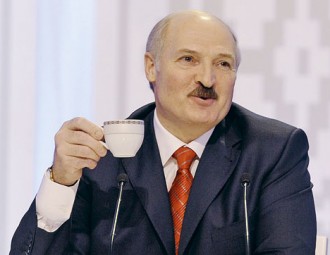Sociologists: Lukashenka’s electoral rate started growing

The majority of the respondents prefer Lukashenka to the candidate from democratic opposition at the forthcoming presidential elections.
Willingness to vote in presidential elections today is expressed by more than 71% of Belarusians. This is evidenced by results of a national survey conducted in June by the Independent Institute of Socio-Economic and Political Studies (Lithuania)).
More than 34% of the respondents answered "yes, of course I will" to the question about the participation in the presidential election, 36.7% said "rather yes", 17.3% - "rather not", 4.8% - "of course, I will not ", Belsat reports with the reference to BelaPAN.
According to the IISEPS, the interest in politics among Belarusians is manifested primarily in the fact that they are voting in elections (68.5%), discuss political events with friends (44.5%) follow closely the information about the political events (34 7 %). Only 3.6% participate in the organization and conducting of electoral campaigns, 3.6% take part in political rallies, demonstrations, pickets, strikes, 2.7% sign letters and addresses, 2.4% are members of political parties and movements.
The election is considered the most realistic and desirable option for change by 49%, nearly 28% believe it is a national referendum, and only less than 10% think it is street protests.
Despite the fact that according to the Constitution of the Republic of Belarus, the people is the only source of state power and the bearer of the sovereignty in the country, only 44.5% of respondents gave the correct answer to this question, and 48.7% believe that it is the President.
Almost a quarter of Belarusian respondents surveyed by sociologists think that after Aliaksandr Lukashenka leaves his post, life in Belarus will improve, same number of people believes that it will get worse, nearly 39% believe that life will remain the same. According to 54.5% of respondents, Lukashenka knows where it is taking Belarus; the opposite reply was given by 35.7%.
According to IISEPS, they interviewed 1,513 people with error not higher than 3%.
-
03.01
-
07.10
-
22.09
-
17.08
-
12.08
-
30.09



























